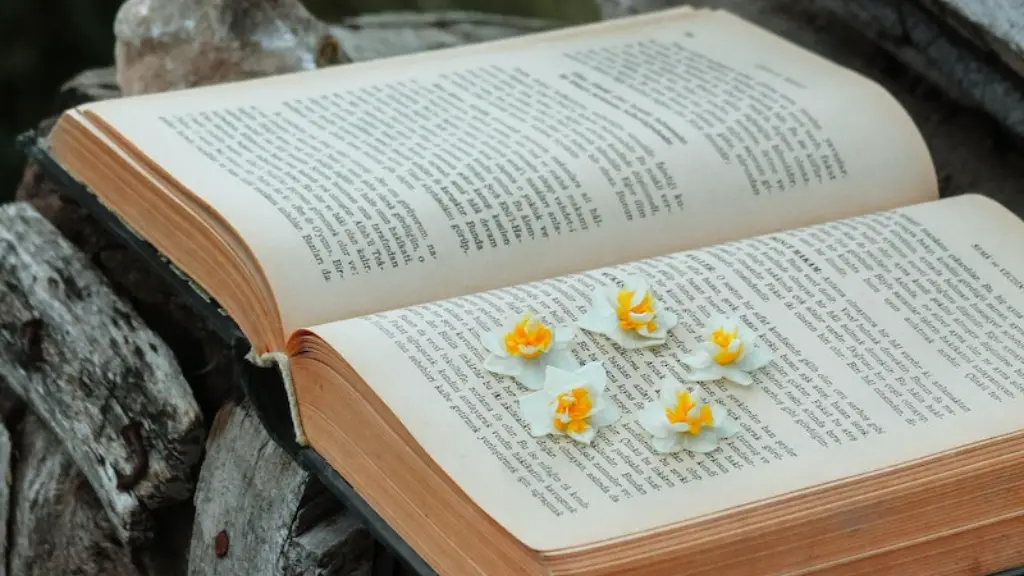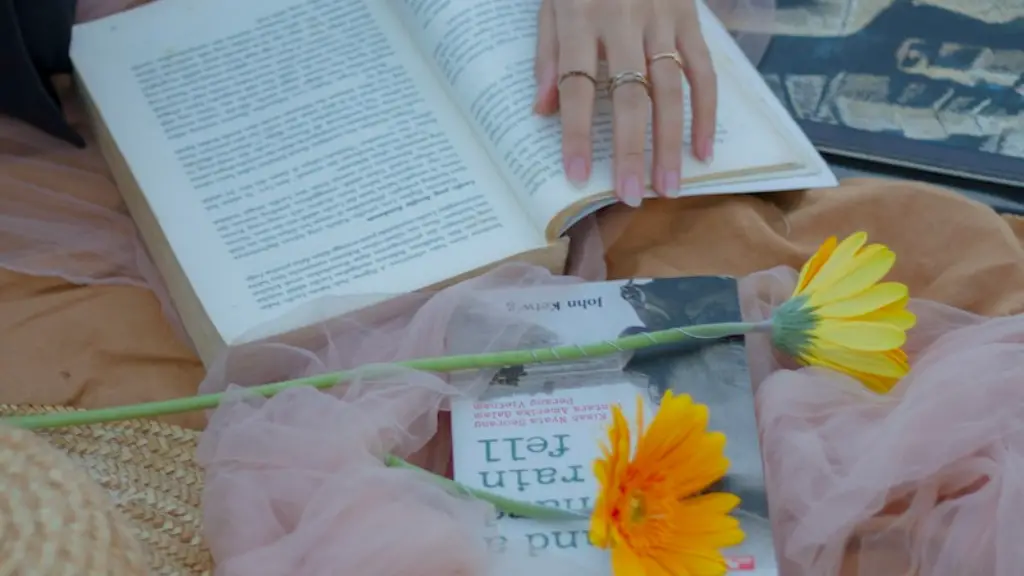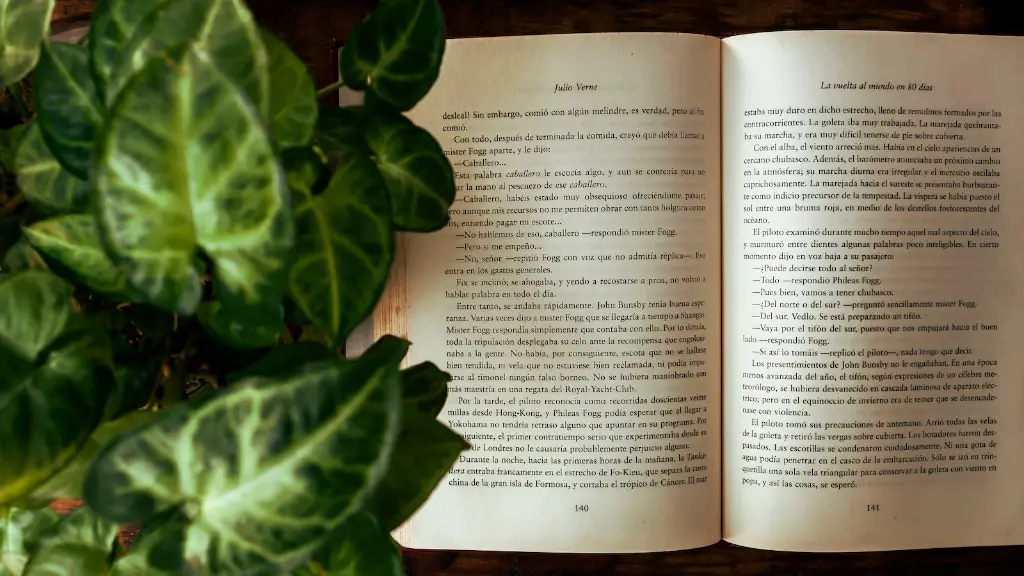Poetry is an art form that has been used to express emotion, describe nature, and tell stories throughout human history. It is a unique medium in which writers engage their reader and create meaning by using imagery, tone, and the creative manipulation of language. At its core, poetry is defined by the compression of language and its use of rhythm, metre, and other devices to express ideas and feelings. Poetry has been said to be the highest form of literature, due to its ability to express complex emotions and ideas in short, well-crafted lines.
The power of poetry lies in its use of imagery and language. Great poets can take an ordinary phrase or idea and use creative manipulation of language to create something that is equal parts joy, anguish, love, heartache, and more. Imagery is integral to poetry, as it is often the vividness of the scene or the subject matter that conveys the poetry’s message more than the words themselves. By manipulating language and imagery, poets can create their own unique vision of the world and help the reader to feel what they are feeling.
However, it is important to remember that poetry is not only about artistic expression. In fact, poetry has been used as a mode of communication, particularly when other forms of communication are not available. Poetry has found its way into oral histories, religious and spiritual texts, and political manifestos. It has been used to convey messages of love, inspiring stories, and powerful arguments. Poetry has long been a powerful form of communication and continues to be used in many different ways today.
Another important aspect of poetry is the use of rhythm, form, and meter. These elements give the poem structure and create a pleasing rhythm that is pleasing to the ear and draws in the reader. Poets use form, meter, and other devices to create a balance between order and chaos, allowing the poem to be both meaningful and artistically pleasing. By combining these elements, poets create something special and unique, that can be appreciated by readers from all backgrounds.
In addition to the use of imagery and language, it is important to note that the process of writing a poem is an essential part of its power. Writing a poem is an act of self expression and exploration. Writing a poem can be an opportunity to explore your own emotions and experiences, which can ultimately be a very satisfying and enlightening experience. In addition, researching topics and performing other relevant research can give the poem context and further enhance its meaning.
In sum, poetry is a highly personal and powerful form of communication. From examining poetic language and its various devices, to embracing the power of imagination, to the process of writing itself, it is clear that poetry has the potential to be a powerful form of expression that can unite people from all backgrounds.
Poetry as a Source of Inspiration
Poetry is often seen as a source of inspiration, and for many years, people have turned to it for advice and guidance. Whether it be a favorite poet or a trend in modern verse, poetry can offer a way to express ideas, feelings, and even form solutions on matters of life and philosophy.
From ancient times such as the works of Homer to modern times, poetry has been seen as a vehicle for inspiration and knowledge. This is seen in the works of poets such as William Wordsworth, who was known for his inspiring poems and encouraging views of nature. Even more recent works such as T.S. Eliot’s “The Waste Land” offer insight and thought-provoking ideas. Poetry can also be a way to gain an understanding of human emotions, helping the reader to better empathize with others and the situations they may be going through.
In addition, poetry can also be seen as a source of creativity and exploration. By reading and creating poetry, writers can gain a better understanding of themselves, their thoughts, and their ideas. Poetry can also lead to new discoveries and understandings of the world as writers learn more about their craft and themselves as they attempt to capture thoughts, ideas and their own perceptions.
Overall, poetry is more than just a form of communication. Even past its primary use as a source of expression, poetry can be seen as a source of inspiration, creativity, and exploration. Those who are not fond of poetry can find solace in books, movies, or poetry readings, or simply find a poem and read for the sheer joy of it.
Poetry as a Tool for Change
Even beyond its use as a form of communication, poetry can be a driving force for change. Poems have been used throughout history to spark social and political movements. Throughout the annals of literature, great poets have used their craft to challenge the status quo and inspire their audiences to action. It is their combination of language and imagery to capture the feelings and ideas of their listeners that has made their work so powerful.
In the modern era, poetry has been especially effective in giving voice to marginalized groups and causes. From the ‘60s civil rights movement to modern-day activism, poetry has been a major source of inspiration and motivation. Poems have been used to encourage people to take action, to stand up for the things they believe in, and have even been used to bring awareness and understanding to important issues. This has extended to online movements, where poetic expression has been an effective tool to bring attention to certain causes.
At its highest level, poetry can be used to spark revolutions and bring about social change. It has been seen as a direct call to action, helping to bring communities together to affect change and disrupt entrenched power structures. From the works of Wordsworth and Whitman to the modern day works of poets such as Warsan Shire, poetry can be a powerful medium to affect change and create a better and more equitable society.
Poetry can be an extraordinary tool for expression and progress, and can bring about the type of transformation that can be difficult to attain through other means. Poetry is ultimately a form of resistance that can provide an outlet for those who have none.
What is the Place of Poetry in Today’s Society?
The role of poetry in today’s society is arguably as important as it ever has been. Poetry is still used as a form of expression and communication to discuss important topics, create meaningful connections with others, and explore the human experience. Modern poets have taken full advantage of digital platforms to share their work and reach a larger audience, while physical spaces that accommodate poetry readings still exist.
In the digital age, many poets have also embraced the world of self-publishing, allowing them to build an audience and reach new heights in both their writing and their career. Poets are also benefiting from the higher accessibility to a wide array of resources, from funding to community support. This has enabled them to create and experiment in different ways, allowing for more experimentation and innovation within the craft.
It is also important to note that poetry is still often seen as a vehicle for education. Poetry is still used in schools and other educational venues, allowing students of all ages to explore the craft and use it to gain a better understanding of language, literature, and the world as a whole. This is beneficial not just to students but also to society at large, as it helps to cultivate a deeper appreciation of art and literature.
Overall, poetry is still a vital part of our culture. While many have argued against its relevance, particularly in the age of technology and digital media, poetry has remained an important source of inspiration and power to those who truly appreciate its craft.
The Impact of Poetry on Personal Growth and Development
It is well known that poetry can have a major impact on personal growth and development, as it can provide a powerful outlet for emotion, creativity, and communication. By reading and writing poetry, people can learn about themselves and gain insight about life and other complex topics. Poetry can be used to both explore and express one’s inner thoughts and feelings, enabling self-discovery and personal growth.
In addition, reading and writing poetry can be a source of solace, comfort, and even joy during difficult times. It can provide a way to process and understand the things that are going on in the world, as well as internal struggles. Poetry can act as a form of therapy, allowing people to explore the depths of their feelings in a safe space. Writing poetry is also a form of creative expression, allowing people to express themselves in a way that other forms of art cannot.
Also, writing poetry can encourage people to be more mindful and aware of their environment and life experiences. Poetry is full of sensory imagery, which can allow readers to gain new perspectives and make connections with the world around them. The creative process of writing poetry can also help people to focus on the present moment and gain clarity.
Overall, poetry can be a powerful tool for personal growth and development, as it provides an outlet to explore one’s thoughts and feelings, as well as to gain awareness and understanding of the world around them. It is a unique form of communication that cannot be achieved by any other medium.
The Role of The Writer in Poetry
The role of the writer in poetry is as much about craft as it is about expression and communication. A great poet spends time honing their skills and exploring their craft, mastering the various elements of poetry that create the desired effect. Not only must a poet be skilled in their use of English, but they must also have an eye for imagery, a deep understanding of the human experience, and the ability to capture a moment in a way that resonates with the reader.
The poet must also be well-versed in the various forms of poetry and the history of the craft. Knowing the roots and backgrounds of different styles can help writers to discover their own style and niche. In addition, writers must possess a desire to explore and challenge their craft, as well as an openness to learning from the great poets of the past.
However, the power of the written word also lies in the writer’s ability to connect with their audience. This requires a poet to think beyond the words on the paper and strive to create meaningful connections with the readers. Poetry is ultimately a form of communication, and the poet must be aware of the thoughts, feelings, and experiences of their audience in order to create an effective and powerful work.
Overall, the role of the poet is to be both a craftsman and a communicator, combining their skills in the English language with their understanding of the human experience to create something that can both inspire and inform their audience.





